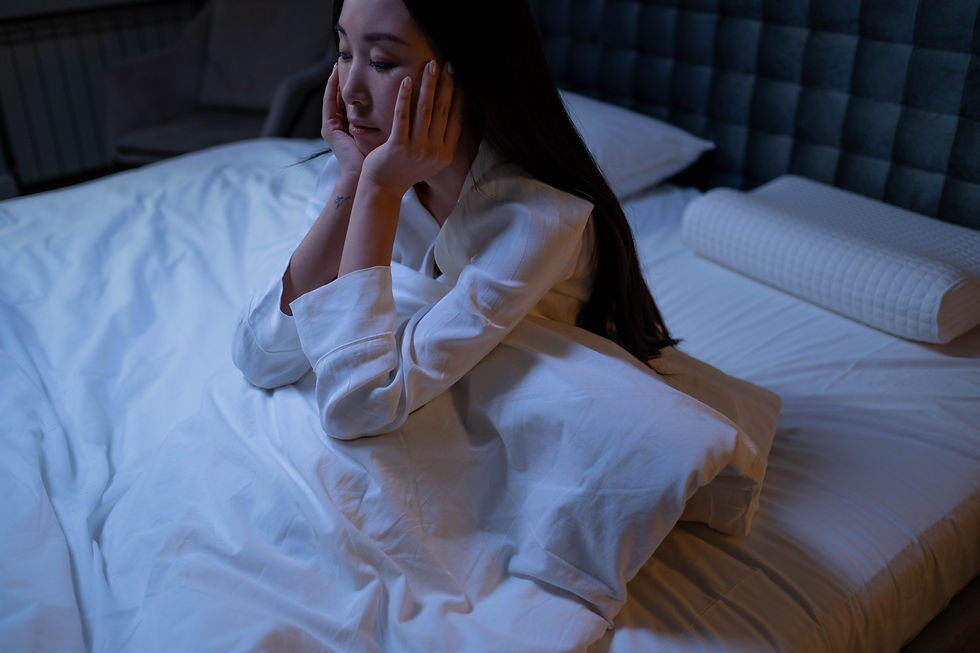Insomnia: battling sleepless nights throughout the semester
- Corvinus International Blog

- Feb 19, 2021
- 4 min read
Insomnia is a very common disorder that troubles a hefty amount of people regularly. Individuals suffering from insomnia may find it hard to fall asleep or stay asleep during the night. These conditions result in insufficient sleeping time, and consequently lead to tiredness, frustration, and even slight behavioral changes in a person’s daily life.

Insomnia can be both short term and long term, with the former, episodical variation being caused by easily avoidable, regular factors in life, while the latter might be a sign of more serious, deep-lying problems that can require professional consultation. Chronic (long lasting) insomnia can be characterized by sleeping problems that linger for more than 3 weeks. However, most cases of insomnia fall into the less serious category and can be countered with simple and effective measures. It is especially common in such times when the weather is constantly changing and we are switching to another season.
Primary insomnia and its causes

Primary insomnia is the variation that is not linked to any serious, underlying health condition, and occurs in otherwise healthy people as well. Students are especially prone to experiencing insomnia, with 7-10% of university attendees suffering from sleeping problems regularly, and possibly even more experiencing insomnia from time to time. The reasons for this are in no way obscure or unknown and can be easily linked to the primary causes of the less serious variant.
Stress is a well-known factor in causing all kinds of health problems, including insomnia. You probably have experienced nervousness because of an exam or event. Most of us have had the misfortune of being anxious about moving to a new place or losing someone important. All these instances can contribute to the surfacing of insomnia in your life.

Outside factors are usual suspects as well: too much light, noise or uncomfortable temperatures while sleeping can also cause problems; after all, insomnia isn’t strictly influenced by what is in our heads.
Another very common reason so many people experience insomnia is the development of harmful, sleep-depriving habits that alter our sleeping schedules and disturb the biological clock inside us that would naturally make us fall asleep when the sun goes down, and wake us up when it rises in the morning. Staying up late at night to watch bright screens (that in itself is harmful to healthy resting) or write an assignment, working late shifts or even jetlag can be the culprits behind your inability to get satisfactory, fulfilling sleep.
The risks and the “treatments”
Of course, most of us are familiar with the symptoms and causes of insomnia. While we tend to ignore them out of necessity or lack of caution, it is important to note that insomnia should be taken seriously, as it can lead to dire consequences that are better avoided. Besides the tiredness, fatigue, mood-changes, and trouble with concentration, chronic or frequent insomnia can carry major risks as well. In some cases, it can lead to long term illness, or damage a person’s mental health. Because of this, it is very important to handle insomnia properly whenever it surfaces and follow some useful advices that can prevent long-term issues.

The most important and basic method you can employ is keeping tight, regular sleeping hours. Of course, we hear this coming from literally everywhere, but if you are a person who actually has troubles with sleeping, this method alone can fix that most of the time. It is even better if you pay close attention to make your sleeping environment as calm and peaceful as possible, so that it can aid you in getting the perfect amount of good quality sleep. Exercising regularly will also improve your sleep pattern and contribute to a healthier lifestyle in general.
The overuse or sometimes even mere consumption of certain substances can prevent you from having problem free rest at night. Too much caffeine, alcohol, smoking, and even late-night dinner or snacking can result in insomnia, so avoiding those reduces your chances of experiencing it. It is also often advised to calm ourselves down before going to bed; reading a book, taking a relaxing bath or deciding not to watch that upsetting horror movie before sleeping can make the difference at night you have been craving for so long.
More serious problems

It is important to note that in an overwhelming proportion of insomnia cases, the disorder is simply caused by everyday irregularities and problems, and it is not a cause for alarm. However, chronic insomnia might be a reason to seek the advice of medical professionals, who upon diagnosis can prescribe sleeping pills if the aforementioned methods have proven ineffective.
In very unfortunate cases insomnia might be the side-effect of something more sinister, making it important to remember that ignoring is not the right choice to make. If you are uncertain or need further help, turning to professionals is the best thing you can do. Most of the time however, simple changes can lead to a happier and healthier lifestyle that you will definitely benefit from.
Have a good time sleeping!




Comments